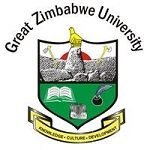Master of Science (MSc) Degree in Gender and Policy Studies
Preamble
These regulations shall be read in conjunction with the Faculty Regulations for Postgraduate Degree Programmes and General Regulations for Postgraduate Degree which have precedence over Departmental Regulations.
General Description of the Programme
This dynamic programme emphasizes the interdisciplinary basis of women and gender studies in relation to policy issues, its community linkage and its grounding in the feminist theory and methodology. The programme will expose students to a rigorous exploration of cross cutting issues relating to gender and policy issues such as feminist perspectives, gender in relation to policy, war peace, literature and culture. It also interrogates gender in the following fields, research, social change, religion, human rights, social justice, migration, environment, family and care giving.
Rationale
The Master of Science Degree in Gender and Policy Studies builds on the Bachelor of Science Degree taken at undergraduate level as well as other traditional disciplines such as Sociology, Social Anthropology Social Ecology and Rural Development, which have a stake in Gender and Policy issues. The rational is to give the programme an interdisciplinary flavor, which is also in tandem with the labour market trends. The programme creates an opportunity for students to respond and suggest strategies for a variety of issues emanating from societal gendered relations as they impact on policy development.
Objectives
The programme aims at:-
• Interrogating the gender imbalances which have exacerbated underdevelopment.
• Assessing the epistemology and gender research methodologies as critical issues arising from Third World Feminist Thought.
• Mainstreaming gender, cultural ideas and practices in policy formulation.
• Equipping practitioners with the capacity to come up with poverty alleviation oriented strategies and interventions.
Career Prospects
This is an advanced degree programme in Gender, Policy and Culture therefore, graduates will bring valuable theoretical and practical experience in Public Administration, Advocacy, Public Policy in areas such as Education, Health, Law, Religion and other related areas. The programme shall specifically focus on professionals and para-professionals engaged in a variety of the aforementioned specializations with bias on gender, culture and policy issues. For candidates who wish to do PhD programmes, the Masters programme will give them the basis for research in Gender and Women’s issues as well as Culture and Heritage.
Consultations
Midlands State University – Department of Development Studies
Lupane University- Department of Development Studies
Women University – Department of Gender and Development Studies
University of Zimbabwe – Department of Sociology and CASS
Entry Requirements
To qualify for admission into the Master of Science Degree in Gender and Policy Studies, a candidate must normally have satisfied the minimum entry requirements to degree studies for this University as prescribed in the General Academic and Faculty Regulations:
Normal Entry
For normal entry, a candidate must have a relevant Bachelor of Science Degree or its equivalent with an upper second class or better.
Special Entry
A candidate who does not meet normal entry requirements may, subject to the approval of the senate, be admitted into the programme on special grounds.
Structure of the Degree Programme
• The programme shall be one and half (1½) years full-time.
• The programme shall be offered in accordance with Faculty regulations
• The programme shall consist of a minimum of ten (10) modules and a dissertation equivalent to two modules.
• Students shall be required to take five (5) modules in semester I, five (5) modules in semester II and two (2) modules in the final semester.
Part I Semester I
Core Modules
Code Module Description
MGPS 501 Epistemological Issues in Gender
MGPS 502 Qualitative Research Methods and Statistics
MGPS 503 Gender and Environmental Policy
MGPS 504 Sexuality, Culture and Society
Optional Modules
A student may choose any one (1) module from the following:
Code Module Description
MGPS 505 Gender and Migration
MGPS 506 Gender, Politics and Governance
Part I Semester II
Core Modules
Code Module Description
MGPS 507 Gender and Community Development
MGPS 508 Gender Policy and Planning in Africa
MGPS 509 Gender and Development
MGPS 510 Gender and Conflict in Africa
Optional Modules
A student may choose any one (1) module from the following:
Code Module Description
MGPS 511 Gender and Disaster Management
MGPS512 Power and Gender in Organisations
Part II Semester I
Core Modules
Code Module Description
MGPS 513 Dissertation
Assessment
• To be admitted into an examination, a candidate must have been registered for that module with the University and completed the modulework in accordance with the General Regulations.
• Each module in the programme is assessed on the basis of a three (3) hour written examination and by module work undertaken during the period of study.
• The weighting for the examination and modulework shall be 70% and 30% respectively.
• A dissertation shall be submitted to the Department in accordance with the Faculty Regulations.
Determination of Results
To successfully complete a programme, a candidate must pass all registered modules.
- A candidate who fails a minimum of two (2) modules within a supplementable range in Part I may be allowed to sit for supplementary examinations.
- A candidate who fails any module below a supplementable range shall be required to repeat.
- A module may be repeated when next on offer.
- The results for each examination shall be published in accordance with the provisions of the General Academic Regulations.
Degree Classification
The final classification for the degree shall be calculated by averaging the three semester module marks.

